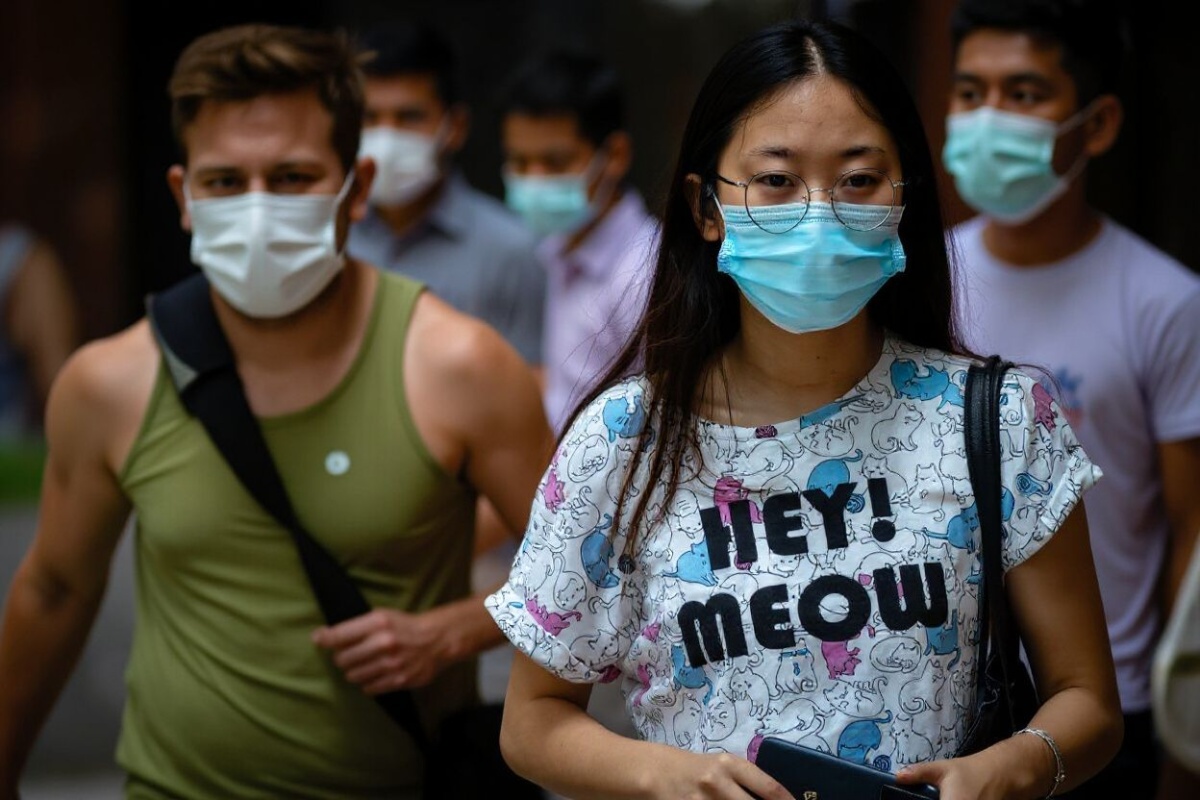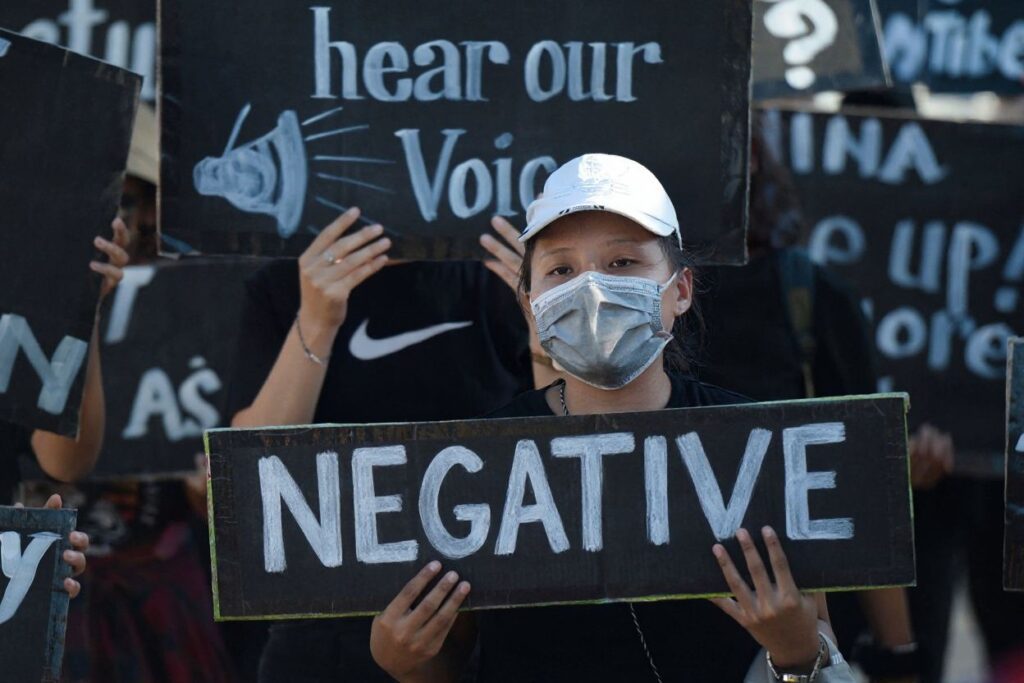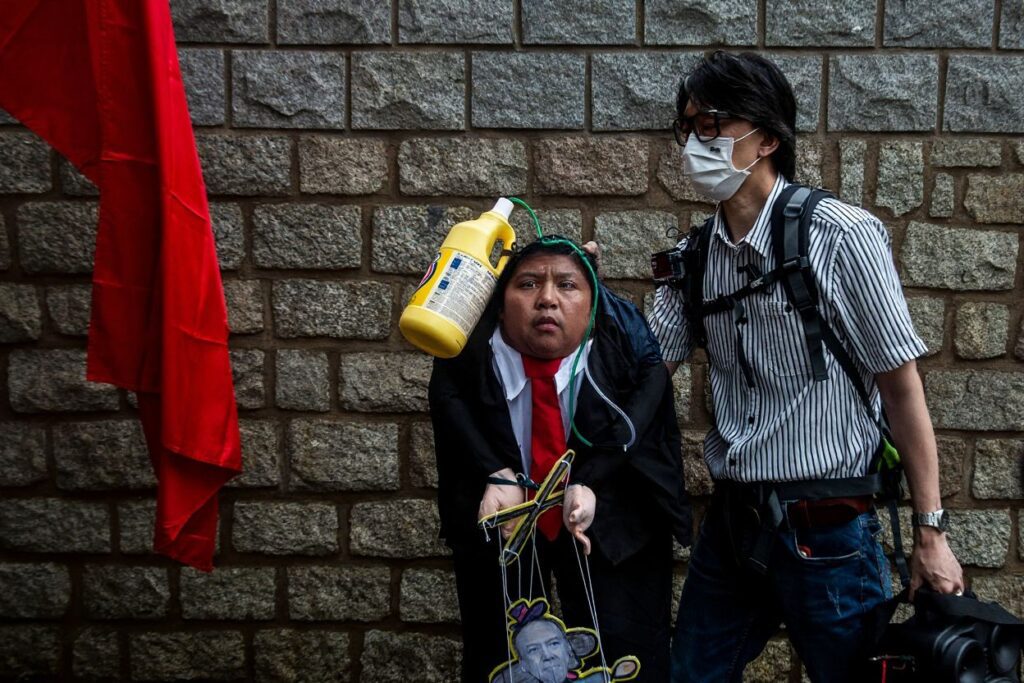
Racism, one of the many types of discrimination, is the belief that different races have unique abilities or qualities that make them superior to another. Racism can be overt or covert, expressed through words, beliefs and/or actions.
International students face many types of discrimination when studying abroad. This includes comments such as being told to go back to their home country or even derogatory comments about where they’re from.
So, what are the types of discrimination international students may face when abroad and how can it be handled?
 Bullying and racism against Asians were reportedly on the rise during the pandemic.
Bullying and racism against Asians were reportedly on the rise during the pandemic.
Linguistic racism
First on our list of different types of discrimination is linguistic discrimination, or ethnic-accent bullying. This happens when a person is treated differently based on his or her accent. For example, a foreign student may often be “‘heard,’ ‘seen,’ or ‘imagined’ speaking ‘bad’ or ‘low proficient’ English irrespective of their actual high-level in English”.
Joy Nath, a sophomore at Oklahoma University from India, shares his experience: “People will be like, ‘Oh my God, your English is so good’, and I’m like, ‘Did you expect it to be bad?,” Nath told OU Daily.
Students can play a role in combatting linguistic racism by acknowledging that international students come from different backgrounds and thus, have different accents; actively stand up for those who are singled out because of their accents, use the power of social media to raise awareness and call bullies out, and to be aware that any action, however small, helps.
What can professors do? Get to know their students’ different language backgrounds, assess them on what they’re actually being taught, provide those students with the chance to write in their own voice, work harder to understand multilingual students, encourage this behaviour to other students and raise awareness on campus when needed.
 Since the pandemic, there have been countless reports and media accounts of assaults, verbal harassment and bullying in countries like France, Russia, the UK and the US.
Since the pandemic, there have been countless reports and media accounts of assaults, verbal harassment and bullying in countries like France, Russia, the UK and the US.
Racial microaggressions
Second on our list of the different types of discrimination faced by international students are racial microaggressions.
Racial microaggressions can be described as “brief and commonplace daily verbal, behavioural, or environmental indignities, whether intentional or unintentional, that communicate hostile, derogatory, or negative racial slights and insults toward people of colour”.
Marissa Naclerio, a senior at the University of Connecticut, experienced this first-hand. Naclerio claimed that her professor suggested that the only way to pass environmental legislation was to have a benevolent dictatorship, according to the Hartford Courant.
Naclerio, whose mother is Nicaraguan — a country that has an actual dictatorship — raised her hand and asked him not to use this term so lightly. Racial microaggressions tend to reinforce white privilege or systemic racism, and the best solution is to increase awareness of it.
There are several ways to deal with racial microaggressions: let it go, respond immediately or respond later. Harvard Business Review notes that the decision to respond immediately can be risky.
“Immediacy is an important component of correcting bad behaviour. But this approach can be risky. The perpetrator might get defensive, leaving the target feeling like they somehow ‘lost control,'” it said.
The decision to respond later is “A more tempered response is to address the perpetrator privately at a later point to explain why the microaggression was offensive,” said HBR.
Students can consider assessing their situation before choosing how to respond using “an effective dialogue”.
 Since COVID-19, there has been an uptick in racist behaviours towards individuals of Asian descent.
Since COVID-19, there has been an uptick in racist behaviours towards individuals of Asian descent.
COVID-19-related racism
Since COVID-19, there have been reports of an uptick in racism towards individuals of Asian descent.
Why? COVID-19 was first identified in Wuhan, China back in 2019. Since then, there have been countless reports and media accounts of assaults, verbal harassment and bullying towards individuals of Chinese descent in countries such as France, Russia, the UK and the US.
Zacky, an Indonesian student in Germany, experienced this first-hand when someone said, “Hey Chinese, Asian, why are you here?” while he was walking down the street in Berlin.
Puspa, an Indonesian student at the University of Bonn, claimed that she was walking home from a friend’s house on New Year’s eve when “someone threw a firework at me”. She was “pretty sure” it happened because she was wearing the hijab, reported DW.
If you’re faced with verbal abuse, try to stay calm. A verbal assault can escalate to physical violence, so if you feel your physical safety is threatened, find a safer place to be, such as a public place or even a police station. Sometimes, calling out on a verbal abusers’ inappropriateness can help.
Steve Whitehead notes on EMS1.com: “Try a response like, ‘That’s a very hurtful thing for you to say,’ or ‘Those remarks are highly inappropriate,’ or ‘I’m not going to engage in a conversation that’s profane or hateful’”.
If you witness a threat of violence, get a teacher or a person of authority to step in immediately.










